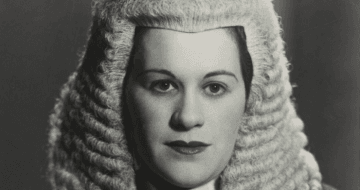Less than half think current gender equality measures are effective

More than two-thirds (67%) of women lawyers believe their firms are committed to improving gender equality, but less than half (45%) feel current measures are effective.
New research undertaken by the Next 100 Years Project, which supports the progression of women in law, found that firms could make further strides if they focused their efforts on providing more practical support and increased flexibility.
It surveyed over 200 women lawyers ranging from trainees to partners working in-house and private practice, as well as barristers and legal executives.
They found initiatives such as mentoring, flexitime, maternity return support and women’s networks work well, but are implemented by relatively few law firms.
Other measures that garnered majority support but were provided by few legal employers include financial support for childcare, gender diverse client teams and enhanced paternity leave, according to the research.
External diversity pledges were considered to be the least effective measure by more than a quarter (27%) of female lawyer respondents.
The research found the majority of women lawyers welcome flexible (remote, hybrid and part-time) working, but fears remain about the impact such working patterns have on equal opportunities.
Only 54% were confident that work was allocated fairly between men and women in their organisation whilst a fifth believed it was not.
Meanwhile, over half felt part-time working was detrimental to being given the best work and just over a third felt working from home was also a contributory factor to missing out.
Looking at the wider legal industry, the women lawyers surveyed considered role models, mentoring programmes and sector or specialism-specific groups for women, to be the most effective in supporting them to progress in their careers.
They also backed fair and transparent recruitment and promotion processes; accountability and responsibility from workplace leaders; changes to working practices with support for working parents; and societal change relating to gender stereotypes both in and outside the workplace, to reduce gender inequality.
Dana Denis-Smith, founder of the Next 100 Years, said: “We have made real progress — the profession knows it must tackle gender inequality and the normalisation of hybrid working has been a positive step. Although there are outliers, the majority of women lawyers are working for organisations that want to see them succeed and are bringing in measures to remove any barriers.”
She continued:
“With organisations adopting a wide range of new initiatives, from gender blind work allocation to fertility services and menopause support, it’s time to take a step back and focus on what women are telling us really works. By thinking more strategically, law firms and other organisations can ensure efforts to improve diversity in their workforce are being channelled effectively. Our research suggests that means prioritising practical help with childcare, more truly flexible working options, targeted support for returners and wider uptake of mentoring and coaching schemes or networks.”
The Next 100 Years is the successor project to the First 100 Years, which was created to chart the journey of women in law in the first 100 years following the Sex Disqualification (Removal) Act 1919, which paved the way for women to become lawyers for the first time.


